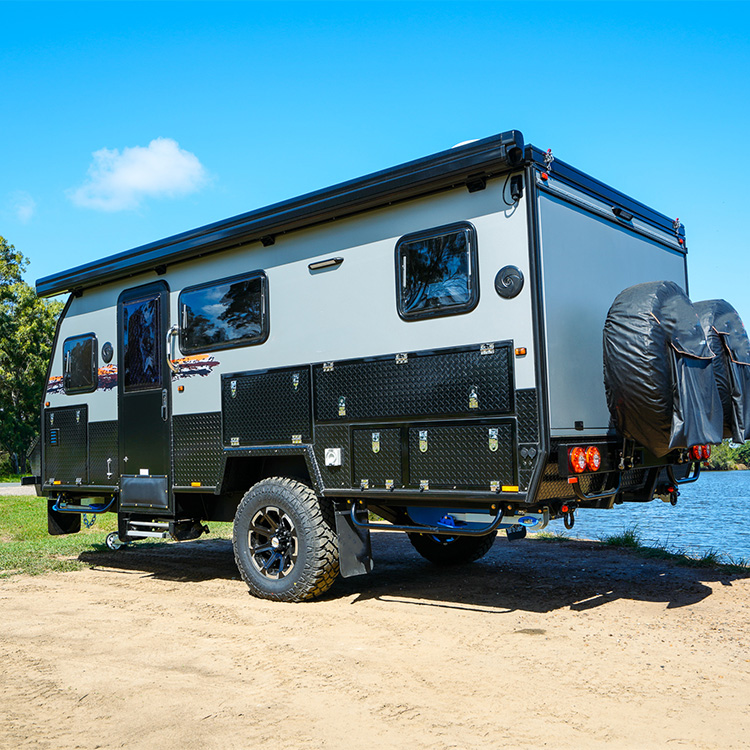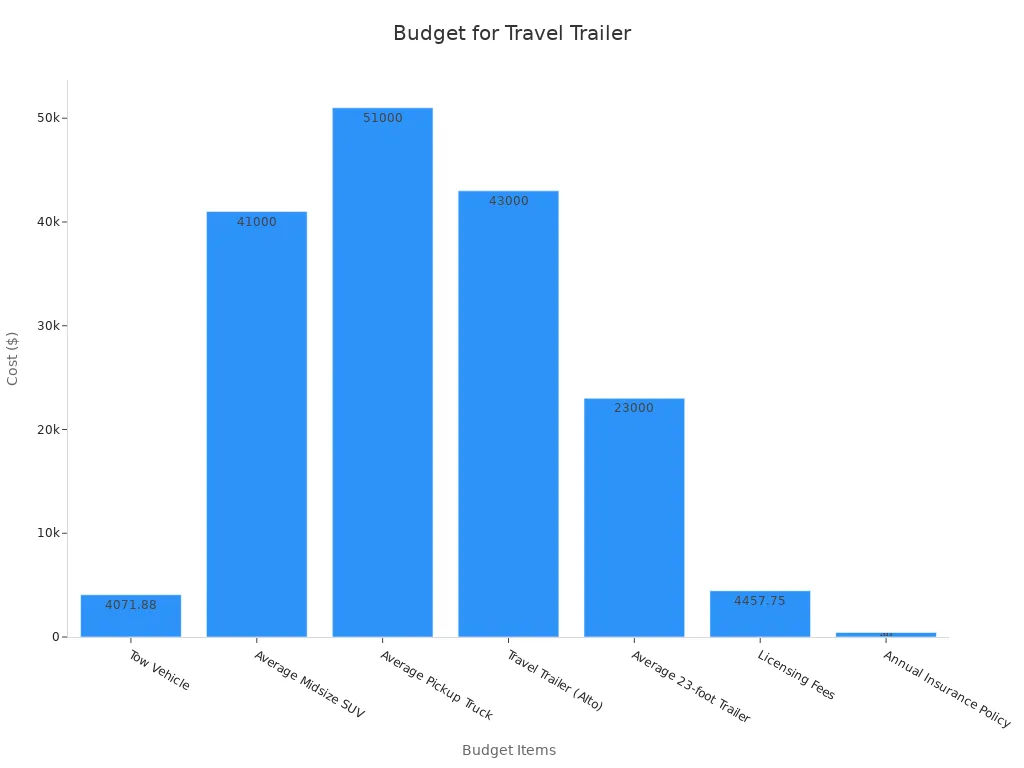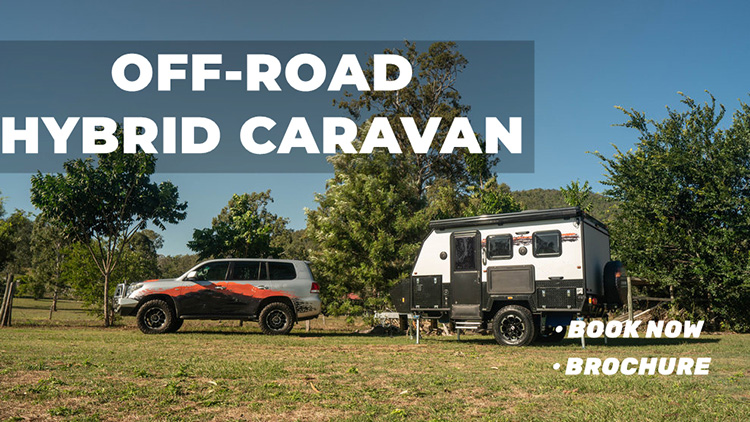Top Tips for Finding Your Ideal Travel Trailer with Tent

Selecting the ideal travel trailer with tent can enhance your camping experience. It provides comfort and convenience while immersing yourself in nature. The camping market is projected to reach £48.86 billion by 2025.
An increasing number of individuals are recognising the advantages of investing in a quality travel trailer.
Opting for the right trailer caters to your requirements, whether you are travelling solo or with family.
A well-designed camper trailer with tent significantly improves trips and makes outdoor living more manageable.
Key Takeaways
Think about how you like to camp. Decide if you want more comfort or a simpler setup.
Count how many people will join you. Pick a trailer with enough beds for everyone to sleep well.
Plan your spending before you shop. Include costs for the trailer, towing car, insurance, and repairs to avoid extra expenses.
Check the trailer's size and weight. Make sure your car can pull it safely.
Look over the trailer carefully before buying. Choose one with strong materials and features that make it safe and easy to use.
Understanding Your Needs
Camping Style and Choices
Knowing your camping style helps you pick the right trailer. Do you like fancy camping or simple trips?
New camping trends have changed trailer designs to suit everyone. For example:
Trend Theme | Description |
|---|---|
Old-fashioned look with modern features for unique travel experiences. | |
Flexible Interior Configurations | Adjustable designs to fit different needs and make small spaces comfy. |
Affordable Pop-up Campers | Budget-friendly options that are stylish and reliable for saving money. |
If you want comfort, choose trailers with kitchens, bathrooms, and cosy spaces. These are great for families or people who like a homey feel.
Pop-up campers are simpler, with basic cooking areas and comfy beds.
They are best for those who want to save money and enjoy nature closely.
Family Size and Sleeping Spaces
The size of your family matters when picking a trailer. Trailers come in many sizes and layouts to fit your needs.
For families, bunk rooms give more sleeping options.
These rooms often have private spaces, foldable furniture, and extra storage.
Everyone gets a comfy spot to sleep while travelling.
If you travel with friends or big groups, pick a trailer tent with flexible sleeping setups. Good sleeping spaces make trips more fun for everyone. Whether you need cooking areas or gear storage, there’s a trailer for you.
On-Road vs Off-Road Camping Spots
Where you camp affects the trailer you need. Off-road trailers are tough and handle rough paths well.
They have strong builds, good suspension, and extras like solar panels and water tanks. These are great for remote camping.
On-road trailers are easier to tow and work well on smooth roads. They are perfect for campsites and cost less than off-road ones.
Think about where you’ll camp to pick the best trailer for your trips.
Budget and Cost Considerations
Setting a Budget for Your Travel Trailer
Making a budget is the first step to choosing a trailer. More people are enjoying adventure trips as incomes rise. Camper trailers are becoming easier to buy.
The Caravans Market is expected to grow from £62.57 billion in 2023 to £67.71 billion in 2024. This shows the growing interest in travel trailers.
When budgeting, think about trailer and tow vehicle costs. For example:
Item | |
|---|---|
Tow Vehicle | £4,071.88 |
Average Midsize SUV | £41,000 |
Average Pickup Truck | £51,000 |
Travel Trailer (Alto) | £43,000 |
Average 23-foot Trailer | £23,000 |
Licensing Fees | £4,457.75 |
Annual Insurance Policy | £433.00 |
These numbers show the money needed for a trailer.

Balancing Features with Affordability
Choosing features wisely helps you get the best value. Focus on sleeping space, storage, and durability over fancy extras.
Teardrop trailers are small but comfy and cost less. Look at both new and used trailers to save money.
Payment plans can spread costs, making good trailers easier to afford.
Long-Term Costs and Maintenance
Owning a trailer means paying for upkeep. Monthly payments range from £800 to £1500. Insurance costs £1000 to £2000 yearly. Repairs and maintenance cost £2000 to £4000 each year.
These expenses add up, so include them in your budget. Over time, costs can be like mortgage payments.
Regular care keeps your trailer in good shape and avoids big repair bills.
Size, Weight, and Towing Capacity

Picking the Right Size for Your Needs
Start by knowing what you need in a travel trailer. The size should match your camping style and group size. Small trailers are great for one or two people. Bigger trailers with more beds are better for families or groups.
Think about the trailer’s inside and outside measurements.
For example, an outside length of 4120 mm and inside length of 2530 mm gives enough room. This space can be used for sleeping, cooking, and storing items.
If you spend more time outdoors, a smaller trailer with basic features might work.
Check technical details like hub face and spring centre distances. These ensure the trailer stays stable while moving. For instance:
Measurement Type | What It Means |
|---|---|
Hub Face Measurement | Distance between the outer faces of hubs; helps with wheel alignment. |
Spring Centre Distance | Space between spring pad centres; keeps suspension aligned. |
Axle Weight Capacity | Shows how much weight the axle can safely carry. |
Bolt Pattern | Matches wheels to the axle; depends on axle weight rating. |
Knowing these details helps you pick a safe and comfy trailer for your trips.
Knowing Towing Capacity
Towing capacity is key when choosing a travel trailer. It tells you if your car can safely pull the trailer. Check your car’s Gross Combination Weight Rating (GCWR). This is the total weight of your car and trailer together. Also, check the trailer’s Gross Vehicle Weight Rating (GVWR), which includes its weight, cargo, and passengers.
Here’s a simple guide to towing terms:
Weight Rating Type | What It Means |
|---|---|
Gross Vehicle Weight Rating (GVWR) | Maximum weight of the trailer, including cargo and passengers. |
Gross Combination Weight Rating (GCWR) | Total weight of the car and trailer combined. |
Gross Axle Weight Rating (GAWR) | Maximum weight each axle can handle. |
Tow Vehicle Rear Axle Weight Rating | Maximum weight the rear axle of your car can support. |
Trailer Tongue Weight | Weight the trailer puts on the car’s hitch. |
Make sure your car can handle the trailer’s weight. For example, a trailer weighing 560 kg empty and 750 kg full needs a car that can tow this weight. Always check weight limits to avoid overloading.
Storage and Parking Tips
Storage and parking are important when picking a travel trailer. Small trailers need smart storage solutions. Look for trailers with built-in compartments for beds, cooking gear, and outdoor items. Roof racks or undercarriage storage can also help.
For parking, think about short-term and long-term needs. Use wheel locks and secure doors for short-term parking. For long-term storage, add alarms and GPS trackers for safety. Check local rules if parking in one spot for a long time.
Here are some tips for storage and parking:
Use Space Wisely: Try foldable furniture and stackable boxes to save room.
Boost Security: Add locks, alarms, and trackers to protect your trailer.
Plan Parking: Measure your driveway or storage area to fit the trailer.
By planning well, you can enjoy stress-free camping and keep your trailer in top shape.
Features and Amenities
Layout and Sleeping Configurations
The layout of a camper trailer affects your camping comfort. Pick a design that fits your group size and needs. Some trailers have seating that turns into beds. This is great for families or groups, saving space while staying comfy.
For solo travellers or small groups, compact designs work well. These often have fixed beds and simple furniture. They create a cosy and practical space. If you want more comfort, choose trailers with bunk beds or private rooms. These give everyone their own spot to rest after outdoor fun.
Storage and Organisation Options
Good storage keeps your trailer tidy during trips. Many trailers have storage under beds, seats, or in the kitchen. These spaces are perfect for storing clothes, cooking tools, and gear.
Look for trailers with flexible storage, like removable shelves or stackable boxes. Roof racks or outside storage boxes are handy for bigger items like bikes or camping gear.
Tip: Label your containers to find things quickly. This saves time and avoids stress on your trip.
Safety and Build Quality
Safety and strong build quality are very important. Choose trailers with solid frames, good brakes, and secure hitches. These features keep your trailer safe and steady on the road. Materials like rust-proof metals and tough fabrics make trailers last longer.
In Australia, RVMAP checks if trailers meet safety rules. Certified trailers show the RVMAP "key," proving they meet high standards. The industry also has self-regulation to ensure quality.
Quality Check Program | What It Does |
|---|---|
RVMAP | Checks trailers follow Australian safety and design rules. |
Self-Regulation | Industry-led programs to ensure quality and safety. |
Accreditation Display | RVMAP "key" shows trailers meet top safety and build standards. |
Picking a certified trailer ensures it’s safe and well-made, giving you peace of mind.
Easy to Set Up and Use
Picking a camper that’s easy to set up is important. It helps you enjoy camping without wasting time on tricky equipment. Modern campers often have simple designs for quick assembly. Many now include pre-attached tents or pop-up systems that are easy to use.
Think about how long it takes to set up key areas. This includes the sleeping space, kitchen, and other parts. Some campers have colour-coded poles or automatic setups to make things easier. These are great for beginners or families with kids. A good camper lets you settle in quickly and comfortably.
Tip: Ask for a setup demo before buying. This shows how it works and if it’s right for you.
Safety matters too. Choose a camper with strong materials and secure locks. Look for reinforced frames and tough tent fabrics to handle bad weather. These features make setup safer and give you peace of mind.
Also, match the camper to your camping style. If you move often, pick one with fast assembly. For longer stays, choose a camper with more features. By focusing on easy setup, your camping trips will be fun and stress-free.
Types of Travel Trailers with Tents
Soft Floor vs Hard Floor Camper Trailers
Picking between soft floor and hard floor trailers depends on your needs. Soft floor trailers are light and have roomy interiors. They are great for families needing extra sleeping and storage space. These trailers unfold to create a big, open tent area. But, they take more time to set up and don’t handle rain well.
Hard floor trailers are strong and easy to use. Their solid base protects against rough ground and bad weather. They are quick to set up, making them ideal for short trips or frequent travellers. Many hard floor trailers include built-in kitchens and storage. If you want something durable and simple, hard floor trailers are a good choice.
Off-Road vs On-Road Travel Trailers
Where you camp decides if you need an off-road or on-road trailer. Off-road trailers are made for tough paths. They have strong frames, heavy-duty suspension, and big tyres. These trailers are perfect for campers who like exploring remote areas.
On-road trailers are lighter and easier to pull. They work well on smooth roads and campsites. These trailers often have extras like air conditioning and entertainment systems. They are great for families or casual campers. Think about your camping style and places to pick the right trailer.
Hybrid Trailers with Expandable Tent Sections
Hybrid trailers mix features of regular trailers and tent campers. They have expandable tent parts for extra sleeping space but stay compact. These trailers are ideal for families or groups needing flexibility on trips.
Hybrid trailers are becoming more popular. Expandable caravans are part of the non-motorised caravan group, which includes fifth wheels and tent trailers. The market shows growing interest in hybrids because they save space and are versatile.
Market Segment | Description |
|---|---|
Expandable Caravans | Hybrid trailers with tent sections, part of non-motorised caravans. |
Non-Motorised Caravans | Includes fifth wheels, tent trailers, and travel trailers. |
Competitive Landscape | Market trends and competition for hybrid trailers. |
Hybrid trailers balance comfort and practicality. Their expandable parts give more room without making them bulky. They are easy to tow and store. If you want a flexible camping option, hybrid trailers are a great pick.
Practical Tips for Choosing the Right Camper Trailer
Test Driving and Inspecting Trailers
Before buying a travel trailer, take it for a test drive. This helps you see how it moves on the road. Check if it feels steady, brakes well, and turns smoothly. Make sure your car can tow the trailer without trouble. This step is important to match the trailer with your car’s towing ability.
Look closely at the trailer’s tent and overall condition. Check for rust, damage, or wear on the frame and suspension. Ensure the brakes work, the hitch is secure, and the tyres are strong. If you plan to camp in rough areas, pick a trailer with off-road features. Strong tyres are also important for tough paths. A good inspection helps you find a safe and reliable trailer for your trips.
Tip: Use a checklist during inspections to avoid missing anything important.
Researching Brands and Reviews
Learning about brands and reading reviews can help you avoid mistakes. Look for trusted companies that make strong camper trailers. Online reviews and forums share useful tips from other campers. These reviews show what’s good and bad about different models, helping you choose wisely.
Compare trailers within your price range to find the best one. Focus on what matters most, like storage, sleeping space, and weather protection. Many campers suggest setting a budget and sticking to it. Choose quality over fancy extras to get the right trailer without overspending.
Checking Tent and Canvas Condition
The tent and canvas quality affect how long your trailer lasts. Check if the material is strong enough to handle regular use. Look at the seams and stitching; reinforced seams last longer. UV protection is key if you camp in sunny places. Weatherproofing, like waterproof and windproof features, keeps the tent safe in bad weather.
Here’s a simple guide to check tents and canvas:
Metric | What to Check |
|---|---|
Material Strength | Strong fabric and frame resist damage and last longer. |
Seam and Weld Quality | Good stitching and welding make the tent more durable. |
UV Resistance | Protects the tent from sun damage, great for sunny areas. |
Weatherproofing | Keeps the tent safe from rain and wind. |
Maintenance Requirements | Easy-to-clean materials last longer with less effort. |
Warranty and Support | Long warranties show the maker trusts their product’s quality. |
User Reviews | Feedback from users shows how the tent performs in real-life camping. |
Checking these points helps you pick a tent that works well and lasts long. Always ensure the tent meets your camping needs and has safety features.
Picking the best travel trailer with a tent begins with knowing what you need. Think about how you like to camp, how many people are going, and how much money you can spend. Look into different camper trailers and focus on features that make camping better. Check each option carefully to see if it fits your needs. The right camper will make your trips fun and easy. Look around, compare trailers, and choose the one that suits you best. Your perfect camping partner is ready for you!
FAQ
What makes a travel trailer different from a camper trailer?
A travel trailer is a towable home with built-in features. A camper trailer is smaller and includes a tent for sleeping. Camper trailers are great for nature lovers who enjoy outdoor camping.
How can I check if my car can tow a trailer?
Look at your car’s towing details in the manual or online. Compare it to the trailer’s full weight, called GVWR. Your car’s towing power must be higher than the trailer’s weight. This keeps your car safe and prevents damage.
Are hybrid trailers good for long camping trips?
Yes, hybrid trailers are great for longer trips. They have extra tent sections for more space and storage. They also feel like regular trailers, making them comfy for families or groups.
How do I take care of my camper trailer’s tent?
Wash the tent gently with mild soap and water. Don’t use strong cleaners that might harm the fabric. Let it dry fully before storing to stop mould. Fix any rips or weak seams quickly to keep it in good shape.
Should I buy a new or used travel trailer?
New trailers have modern features and come with a warranty. Used ones are cheaper but might need fixing. Check used trailers for damage before buying. Pick based on your budget and how much maintenance you’re okay with.
See Also
Essential Factors to Consider for Folding Camping Trailers
Enhance Your Camping Experience with Travel Trailers Now
Best Advice for Selecting Off-Road Caravans in 2025
Three Important Tips for Selecting Mini Trailers from China
Best Strategies to Utilise Aluminium Ute Truck Trays for Camping
